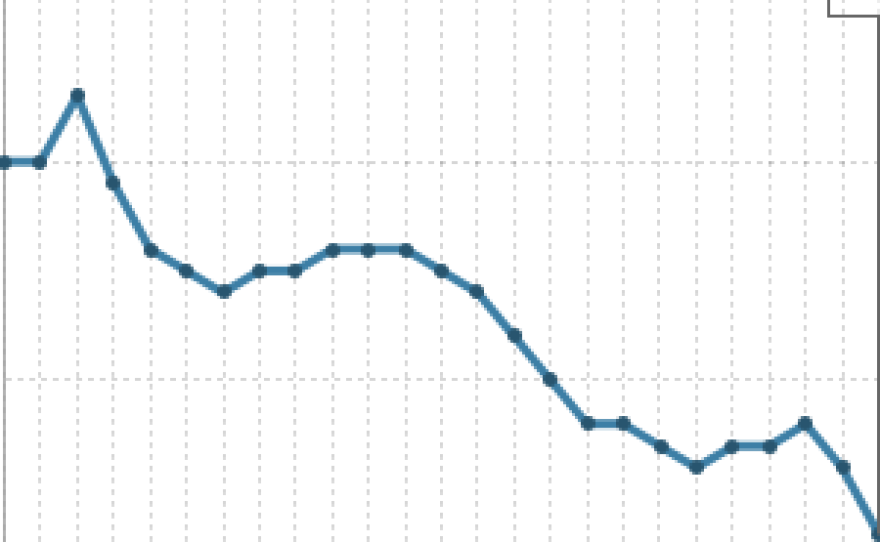People hoping for a dramatic improvement in the nation's stagnant jobs picture are unlikely to find much good news in Friday's monthly jobs report.
As of June, the country's jobless rate stood at 9.5 percent, which amounts to 14.6 million people.
New unemployment figures for July, which are due out on Friday, are unlikely to show a lot of strength. Analysts expect business hiring won't outpace declines in jobs, which could mean the unemployment rate rises slightly.
The Labor Department is expected to say private employers hired 90,000 workers in July, a slight increase from the 83,000 hired in June. But because of government layoffs tied to cutting temporary census jobs, the unemployment rate is expected to rise to 9.6 percent.
And initial requests for unemployment benefits rose last week to their highest level since April, a sign that hiring remains weak and some companies are still cutting workers. New claims rose by 19,000 to a seasonally adjusted 479,000, the Labor Department said.
The federal stimulus has not spurred businesses to hire as robustly as hoped. State and local governments are cutting back. And analysts expect the loss of temporary census jobs to once again translate to a net loss of jobs.
Nigel Gault, the chief U.S. economist for IHS Global Insight, says businesses are very reluctant to hire because demand for goods remains low and the economy is still shaky.
"We're still moving forward, we're still creating jobs in the private sector, but not at a very rapid pace," he says.
The Key Role Of Jobs In The Economic Cycle
The problem is that hopes for a recovery depend largely on when jobs come back. Without jobs, people can't spend. Without spending, businesses don't hire. And that cycle isn't yet broken.
Earlier in the year, Gault predicted private sector hiring would have accelerated by now. But the economy hit a snag, and now he expects it might be a few months before businesses hire more than 100,000 people a month.
"The further we get into the year, the better the numbers should get on the private side," Gault says.
He says companies have gotten by doing more with fewer workers. But there's a limit to those productivity gains, and in coming months businesses will have to bring in new talent if they want to grow.
In anticipation of Friday's jobs report, policymakers have also been sounding warnings that this state of jobless stagnation could take some time to resolve.
President Obama told the CBS Early Show this week that the extraordinary depth of the recession created a huge deficit of jobs -- and that the country is only about halfway through its ordeal.
"People have every right to be scared, to be angry, to be frustrated," Obama said. "And I took this job because I was convinced that I could solve these problems, not just short term, but long term."
Obama added that one of the economy's most intractable problems has been the large number of long-term unemployed people, which stood at nearly 7 million in June.
Geithner: Unemployment Likely To Rise Before Falling
Treasury Secretary Timothy Geithner also weighed in on the jobless problem this week. He told ABC's Good Morning America the unemployment rate would likely rise before it fell again. He said once the economy starts to show improvement, more people start looking for work, which actually will push the jobless rate higher, at least in the short term.
"But what we expect to see, and what we think most private forecasters expect -- this is an economy that is gradually healing," Geithner said. "Of course we want to do what we can to reinforce that process, because it's not coming back as quickly as we'd like."
The Obama administration favors a sunset on the Bush tax cuts for the wealthiest Americans, as well as a small business loan bill the administration says will stimulate hiring.
But so far, both proposals have run into resistance from Republicans who argue expanding programs will worsen the deficit, while letting the Bush tax cuts expire could hobble an already fragile recovery.
Copyright 2022 NPR. To see more, visit https://www.npr.org. 9(MDAzMjM2NDYzMDEyMzc1Njk5NjAxNzY3OQ001))







